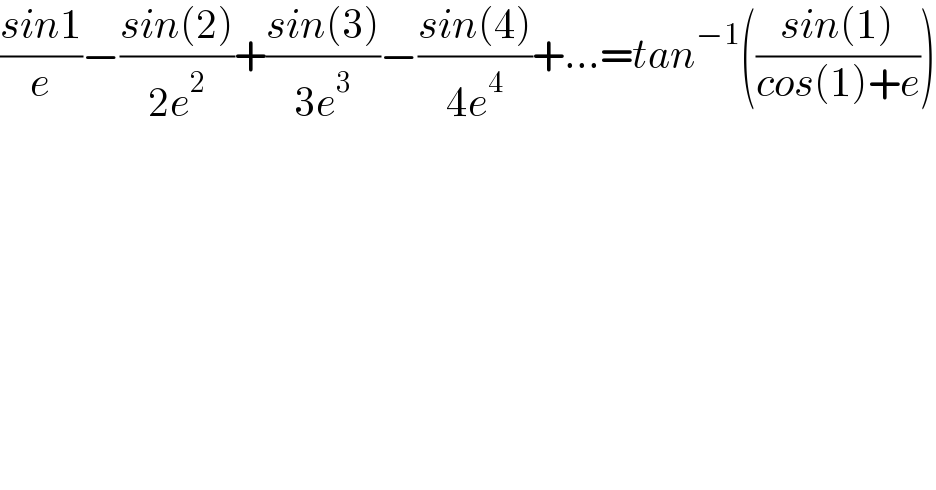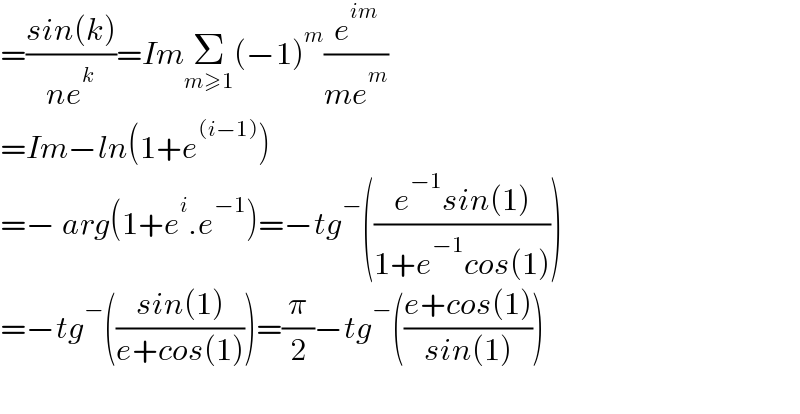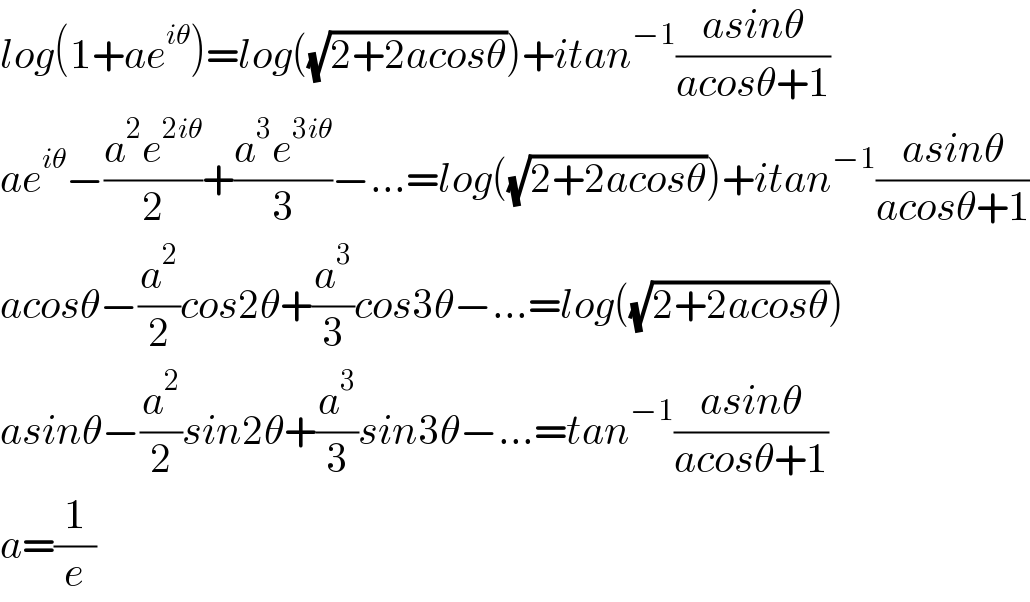
Question and Answers Forum
Question Number 133692 by Dwaipayan Shikari last updated on 23/Feb/21

Commented by Dwaipayan Shikari last updated on 23/Feb/21

Answered by mindispower last updated on 23/Feb/21

Commented by Dwaipayan Shikari last updated on 23/Feb/21

Commented by mindispower last updated on 23/Feb/21

Answered by Dwaipayan Shikari last updated on 23/Feb/21

